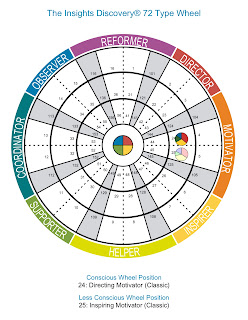Blind men and an elephant
EN English (FR IT PT SP)
Blind men and an elephant
There's a traditional parable about four men, blind from birth, trying to reconcile their different perspectives of an elephant. The one touching the tusk has a different view from one holding a leg; or the trunk; or the tail; or an ear...
The parable is often told to claim that all religions have a partial perspective on one god.
However, there are at least two fatal problems with this analogy:
- Firstly, in the parable the men may be blind, but they're men with a human brain. The elephant might have a reputation for a good memory, but it doesn't have the brain power of a human being. The parable is pretty arrogant in giving such a high status to humans compared to God.
- But it gets worse: the narrator claiming to observe the four poor blind men surrounding a dumb elephant puts himself in an even more exalted perspective than all the rest together! The sheer arrogance of the supposed observer is something to behold as he alone (it's probably a 'he'!) claims to be able to survey the entire landscape of all the different religions, along with God Himself!
The reality is that we can't have that outside perspective. Each of us is created, not the Creator. We can't know Him.
That's why God Himself was born in the flesh as Jesus Christ who said, "Anyone who has seen me has seen the Father!" If you want to know what God is like (and you should!) then you need only to look to the person of Jesus Christ who revealed everything we need to know.
I recommend starting with John 1 and reading the whole of the short book.
No, we're not blind men struggling to describe our part of the elephant. Compared to the mind of the Creator, we are each at best a single Lego brick placed into position in His design. We're a single brick in His wall.
FR Frances (EN IT PT SP)
Des aveugles et un éléphant
- Premièrement, dans la parabole, les hommes peuvent être aveugles, mais ce sont des hommes avec un cerveau humain. L'éléphant a peut-être la réputation d'avoir une bonne mémoire, mais il n'a pas la puissance cérébrale d'un être humain. La parabole est assez arrogante en donnant un statut aussi élevé aux humains par rapport à Dieu.
- Mais c'est pire : le narrateur prétendant observer les quatre pauvres aveugles qui entourent un éléphant stupide se met dans une perspective encore plus exaltée que tous les autres réunis ! La pure arrogance de l'observateur supposé est quelque chose à voir comme lui seul (c'est probablement un « il » !) Prétend être capable d'examiner tout le paysage de toutes les différentes religions, ainsi que Dieu lui-même !
IT Italiano (EN FR PT SP)
Ciechi e un elefante
- In primo luogo, nella parabola gli uomini possono essere ciechi, ma sono uomini con un cervello umano. L'elefante potrebbe avere la reputazione di una buona memoria, ma non ha il potere cerebrale di un essere umano. La parabola è piuttosto arrogante nel dare uno status così alto agli umani rispetto a Dio.
- Ma peggiora: il narratore che afferma di osservare i quattro poveri ciechi che circondano un elefante stupido si mette in una prospettiva ancora più esaltata di tutti gli altri messi insieme! La pura arroganza del presunto osservatore è qualcosa da vedere come lui da solo (probabilmente è un "lei"!) Afferma di essere in grado di esaminare l'intero paesaggio di tutte le diverse religioni, insieme a Dio stesso!
PT Português (EN FR IT SP)
Homens cegos e um elefante
- Em primeiro lugar, na parábola os homens podem ser cegos, mas são homens com um cérebro humano. O elefante pode ter uma reputação de uma boa memória, mas não tem o poder cerebral de um ser humano. A parábola é bastante arrogante em dar um status tão alto aos humanos em comparação com Deus.
- Mas fica pior: o narrador que afirma observar os quatro pobres cegos cercando um elefante burro se coloca em uma perspectiva ainda mais exaltada do que todos os outros juntos! A pura arrogância do suposto observador é algo para se ver sozinho (provavelmente é um 'ele'!) Afirma ser capaz de examinar toda a paisagem de todas as diferentes religiões, junto com o próprio Deus!
SP Español (EN FR IT PT)
Ciegos y un elefante
- En primer lugar, en la parábola los hombres pueden ser ciegos, pero son hombres con un cerebro humano. El elefante puede tener la reputación de tener una buena memoria, pero no tiene el poder cerebral de un ser humano. La parábola es bastante arrogante al dar un estatus tan alto a los humanos en comparación con Dios.
- Pero se pone peor: ¡el narrador que afirma observar a los cuatro pobres ciegos que rodean a un elefante tonto se pone a sí mismo en una perspectiva aún más exaltada que todos los demás juntos! La pura arrogancia del supuesto observador es algo que se ve como él solo (¡probablemente sea un "él"!) ¡Afirma ser capaz de examinar todo el paisaje de todas las diferentes religiones, junto con Dios mismo!




Comments